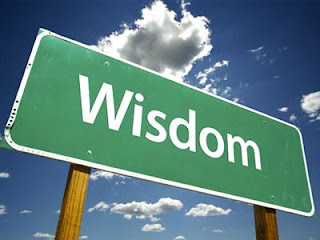'Say to Aharon, "Take your staff and stretch out your hand over the waters of Egypt...and they shall become blood..." (Shemot 7:19) G-d said to Moshe, "say to Aharon: Take your staff and strike strike the dust of the earth; and it will turn into lice throughout the whole land of Egypt." (Shemot 8:12)
In this week's Torah portion, Va'eira, Moshe is sent down by G-d to Egypt to redeem his brothers & sisters, the Jewish nation. During Pharaohs decree decades earlier, that every male born must be thrown into the Nile river and drowned, Moshe's mother Yocheved gave birth to Moshe. But instead of handing him over to the Egyptian authorities, she placed him in a secure basket, and placed it into the river. Miraculously, the basket flowed along until it is seen by Pharaoh's very own daughter, Batya, who saves the boy (incidentally, Batyameans 'daughter of G-d.' She is named such in honor of her saving one of G-d's children, Moshe.) Needing a mother to nurse the baby, Yocheved (mother of Moshe) is chosen. She nurses & raises Moshe, teaching him of his heritage and people, before he is given back to Batya's care. One day, already an adult in Pharaoh's household, Moshe walks out of the palace and sees an Egyptian taskmaster brutally beating a Hebrew slave. A man of action, Moshe utters a secret name of G-d, killing the Egyptian, and buries him. When Pharaoh finds out, he wants to kill Moshe, so he runs away, only to return many years later upon G-d's command.
When Moshe returns to Egypt, he demands the release of his people from slavery. When Pharaoh scoffs at this cheeky request, G-d strikes the Egyptians with 10 plagues. What's peculiar, however, as noted at the top of this page, is that G-d tells Moshe to take part in bringing down the plagues, but only the last 7 of them. It is his brother Aaron who is told to take part in the 1st 3: Water turning to blood, frogs and lice infestations. How come? The Midrash explains: "Since the river protected Moshe when he was thrown into it, it was not stuck by him at the plague of blood or that of frogs, but was instead struck by Aharon." (Midrash Shemot Rabah 9:10) And the lice? "It was not fitting that the dust be struck by Moshe because it protected him when he killed the Egyptian & hid him in the sand, so it was instead struck by Aharon." (Rashi)
~~~A well-known Rabbi once went to visit a wealthy philanthropist for a donation. This was a man who, albeit not personally observant, supported the Torah study of many institutions. Curious, the rabbi asked him why he did this. Where did he develop such sensitivity towards yeshivot? He gave the following explanation: "I was a wild teenager, going from trouble to trouble. My parents sent me to Radin to the yeshivah of the saintly Chafetz Chaim. Perhaps there I would be inspired to calm down. Regrettably, I was not accepted. I just was not considered yeshivah material. I was not granted permission even to sleep overnight in the yeshivah. Where would I spend the night? The Chafetz Chaim said, 'You can stay at my home.' So, I went home with the Chafetz Chaim.
"The Chafetz Chaim's idea of home was a two room shack. He gave me his own bed. The room had no light and no heat. Apparently, the great Torah leader was a very poor man. I was a young boy, accustomed to a hot meal and a warm bed. Laying there at night, I was shivering from cold, tossing and turning, trying to fall asleep. The Chafetz Chaim walked in and noticed the frigid air in the room. Thinking to himself, 'It is too cold in here for such a young boy,' the sage took off his long frock, which was probably going to be his protective clothing for the night, and placed it on me, over the covers.
"Years later, I became a wealthy Jew. Although I had never become observant, I have never forgetten that incident, how the Chafetz Chaim took off his coat and covered me. I was a total stranger and he owed me nothing. Yet, he felt my pain and showed his love for me. I never forgot that feeling of being cared for and loved by a total stranger. I was so moved by that act of unsolicited kindness that whenever a representative of a Torah institution approaches me for a donation, I give it to him gladly. I will never forget that cold night in that little house, and the elderly man with the giant heart. That coat has kept me warm ever since."
The Torah teaches us the importance of gratitude. If Moshe showed such appreciation to water and earth, how much more so must we to human beings who treat us so well.
Shabbat Shalom!
-Rabbi Daniel
















_(english).jpg)




